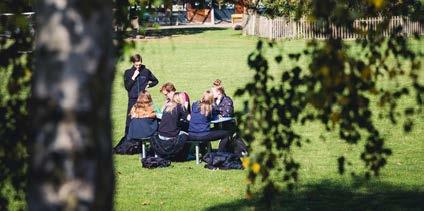
8 minute read
Space to learn
A unique and inspiring place to study Sixth Formers at KAS benefit from their own dedicated study areas situated in our tree-filled grounds
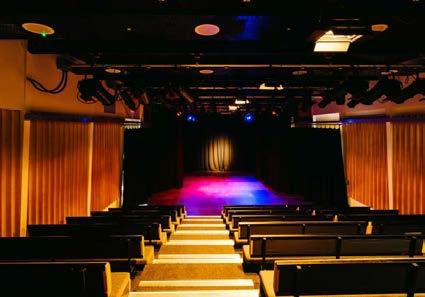
You will be joining KAS at an exciting time as we enter the next stage of our development. One of our major projects is the building of a new Sixth Form Centre which is due to open in April 2020. You will be part of one of the first year groups to benefit from this dedicated, modern and inspiring new space for Sixth Formers which will include a common room, study centre, careers library and outdoor terrace.
Sixth Formers already enjoy their own dedicated Common Room where they are able to relax in between lessons. With tea, coffee and refreshment facilities, the Common Room provides somewhere to socialise with other students.
Study space is provided in the Upper School Library. A comfortable, welcoming environment, the Library is available throughout the school day whether students want to borrow books for their latest coursework, use our online resources, study, or just curl up with a good read.
The King Alfred School is situated over two sites on the edge of Hampstead Heath. The Sixth Form is based mainly on our Manor Wood site which is centred around a beautiful field. With facilities including: state-of-the-art labs for science, ICT suite, a professional theatre, music and drama practice spaces, Music Technology suite, Design Technology workshops, dark room, blacksmithing forge, video editing suite, light-filled art studios, gym, fitness studio, two astro pitches and dedicated classrooms for all subjects, it's a unique and inspiring place to study.

For as long as she can remember, Alanna has loved reading - and writing.
She believes that books are important, that they can make a difference and that they can influence change.
Her love of books grew even more at KAS because she so enjoyed the way she was taught English and so now, in Year 12, it is one of her chosen A level subjects, alongside Drama and History.
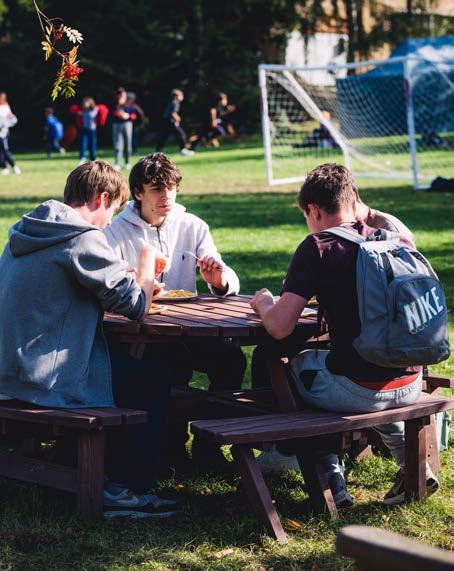
Alanna chose Drama because she loves performing as she finds it a great way to express emotions and to get rid of what is bottled up inside. As someone who loves reading - and writing - plays (Tennessee Williams is her favourite playwright) it is a natural progression to want to act in them too.
She chose History because it fosters good skills such as examining and evaluating evidence and essay writing - and Alanna believes in order to effect change, we need to look at the past. Also, it gives her the added bonus of being able to write period literature confidently and knowledgeably.

Not surprisingly, Alanna wants to go on to university to study English and, potentially, to become a writer.
“The dynamic between the teachers and the pupils at KAS is really important. Teachers go out of their way to help; to organise revision timetables, to offer wellbeing meetings during the stress of GCSEs. At KAS you are allowed and encouraged to explore who you want to be, to make your own decisions instead of having them made for you. You are not forced to follow a particular route but you are supported in finding what is best for you.”
STRETCHING YOURSELF
The EPQ helps students prepare for university style learning Because learning doesn’t have to end when lessons do
Co-ordinated by Extended Project Qualification mentors, the EPQ is a qualification that all sixth formers can take to show what they are capable of when given the chance. There is no formal teaching, and there are no exams.
Students choose the topic they wish to investigate, and will be entirely responsible for the project content. A tutor is assigned to teach the basic skills required to realise the project. Some skills will be relevant to all projects: time management, research, organisation, but others will be very specific to the project carried out by a student.
The project, once finished, can be either a 5000- word written investigation, or a “production” by the student: this could be an artefact, a website, a performance, a novel, the organisation of an event, a blog, directing a play… in that case, a 1000-word document will complement the project.
Students also have to submit a production log which records planning and progress, including the review meetings with their supervisor.
Finally, students will need to make an oral presentation of their project in front of an audience. The students’ work is assessed and moderated by the teachers, before being submitted to the board. Marks are awarded as follows:
• Project Management Skills: 20%
• Effective use of resources: 20%
• Developing and realising the project: 40%
• Review / evaluation of own performance: 20%
The project is equivalent to half an A level and is graded in the same way. So an A* grade would give 70 UCAS points, an A 60, a B 50, a C 40, a D 30 and an E 20.
Embarking on such a project is a very good way for students to prepare themselves for University style learning and can be a means of distinguishing between equally good students when it comes to University applications.
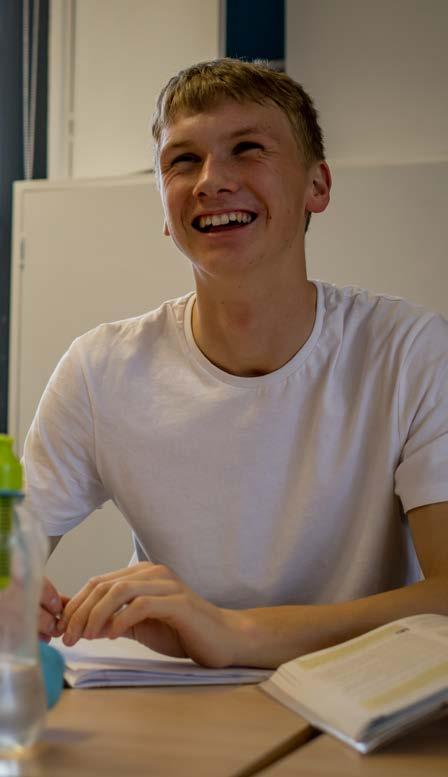
Louis grew up watching his father and his grandfather fix the unfixable and was in awe. He looked up to them and wanted to emulate them.
So, when he joined KAS in Reception, he started doing DT immediately and has excelled in it to the point that he is now, in Year 12, studying it for A level along with Politics and History.
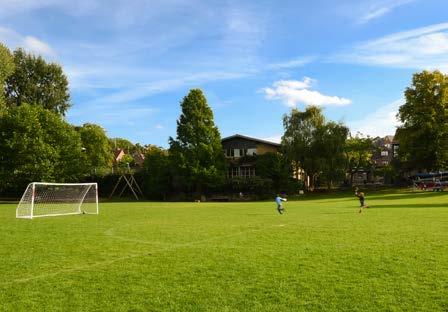
Louis chose Politics because he is genuinely interested in current affairs all over the world and wants to be sure he votes with knowledge. He selected History because he feels it helps him to understand how we got to where we are.
Louis is considering either Law or Architecture for his degree and subsequent career. Law, because his father is a solicitor and so has grown up hearing about legal matters and Architecture because it ties in with his love of DT.

Louis plays a couple of hours of video games daily and also adores music.
“I’ve been at KAS since Reception and it has helped me in many, many ways. The teachers are all incredibly supportive. You genuinely have a personal relationship with them and if you are not doing well in something, rather than judge you they help you. It’s not about pressure, it’s about encouragement. I was always really bad at both Maths and spelling but the teachers supported me with so much extra help that now I am confident and good at both. They have encouraged me with the stuff I love and helped me develop.”
ART AND DESIGN/BIOLOGY/CLASSICAL CIVILISATION/COMPUTER SCIENCE/ CRITICAL AND CONTEXTUAL STUDIES IN ART AND DESIGN/ECONOMICS/ ENGLISH LITERATURE/FILM STUDIES/ FRENCH/GEOGRAPHY/HISTORY/LATIN/ MATHEMATICS/ FURTHER MATHEMATICS/ MUSIC/MUSIC TECHNOLOGY/ PHOTOGRAPHY/PHILOSOPHY/PHYSICS/ POLITICS/PSYCHOLOGY/SPANISH/ THEATRE STUDIES/THREE DIMENSIONAL DESIGN (ART & DESIGN)/EXTENDED DIPLOMA IN PERFORMANCE AND PRODUCTION ARTS
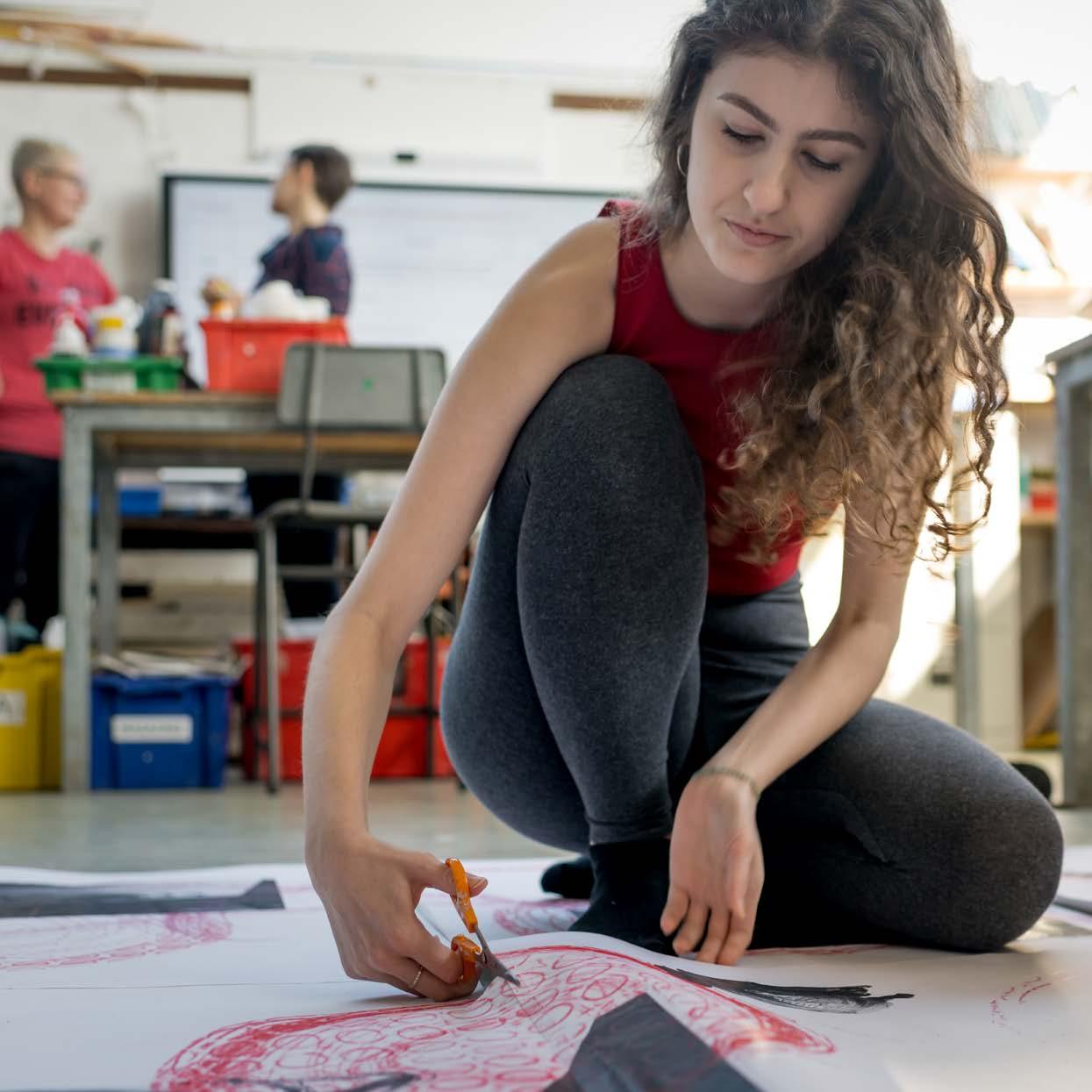
ART AND DESIGN
EXAM BOARD: OCR
Entry requirements:
A Grade 6 at GCSE in an Art related course.
Head of department:
Will Lewer
Art and Design at A-level will build on the experiences of students at Art GCSE, but with a keener emphasis on deep enquiry and independence.
Projects will be theme-based with students encouraged to build up research across a range of ideas and disciplines. Increasing independence, initiative and ambition will all be features of working at this level, as will a developing engagement with issues around the practice and theories of contemporary art and design and culture.
Students will gain experience of the following in each year: • Developing a body of independent imaginative work and ideas in 2, 3 and 4 dimensions • Working in groups and individually to experiment and develop work to long and short briefs • Life drawing sessions after school and 3D sculpture workshops. • Gallery visits to London’s main commercial and public collections to see and experience live art Introduction to a broad range of practice-based processes and materials An annual Year 12/13 foreign art trip (we have been to Eindhoven, Berlin, Paris and Venice in recent years). This will be dependent on government advice relating to Coved 19. Designing, mounting and hanging interim exhibitions of their own work throughout the course Advice and support in building a portfolio of work for application to Art College, if relevant.
Assessment Unit 1 (60%)
Unit 1 is structured around 2 thematic enquiries over the first year of the course in which students build a diverse and substantial folder of work. The focus is on exploration, discussion and investigation rather than resolved outcomes. Students will develop their own ideas through sketchbook exploration, and study the working practices and contexts of a range of related artists, designers and creative practitioners. They will be encouraged to be independent, inventive and bold, and to visit exhibitions to inform their work.
As part of their Unit 1 submission students will make an independent investigation into an aspect of the subject that interests them and write an essay of 1500 words.
Unit 2 Externally Set Assignment Year 13 (40%)
The ESA takes place from February to June of the Y13 year, and is a standalone project that is worth 40% of the A Level. Students choose one of six themes set by the exam board and make an independent enquiry which culminates in a final, or series of, resolutions over 3 days. Students will be encouraged to investigate and explore mediums and processes that inspire them, and to build a body of informed work that culminates in ambitious and individual resolutions.
All project work will be exhibited and celebrated at the end of the course with a big final exhibition.





